CIMA Regulatory Entity

In this article
CIMA, the Cayman Islands Monetary Authority, is a primary regulatory entity of Cayman Island financial services and its currency board.
The CIMA is responsible for administering and regulating financial services. It guides the government of the Cayman Islands regarding financial regulation matters. CIMA has four areas of responsibility that are monetary, regulatory, advisory, and cooperative.
These areas of responsibility manage the currency and evaluation of banknote’s reliability. The supervision and administration of the financial services industry and monitor the policies set against money laundering. Further, the cooperation with the overseas regulatory authorities for fostering supervisory standards globally.
And also, it advises the government of the Cayman Islands regarding all the above-discussed activities.
CIMA mission and vision
The Cayman Island Monetary Authority aims to protect and promote the integrity and stability of the financial services industry of Cayman Island.
Also, it has the vision to create an innovative, thriving and well-regulated financial services system and currency system in Cayman Island. And that financial services and currency system should meet the international standards to provide more requirements and value to the stakeholders.
CIMA values
The CIMA has specific values that empower each member of the staff to provide a productive outcome. The values encourage each member to become accountable for his commitment and responsibilities. CIMA set a high standard of the financial market by focusing on shared goals through honest and efficient behaviour. It also sets its values such that the customers with which it interacts will be well treated and ensures that their opinions have value for CIMA. So the values it has for accomplishing all these activities include:
- Integrity
- Accountability
- Teamwork
- Respect
- Collaboration
- Excellence
CIMA history
The Cayman Islands Monetary Authority started operating on 1st January 1997 as a corporate regulatory entity. It came into existence under the Monetary Authority Act.
CIMA was established to replace two departments: Cayman Island Currency and Financial Services Department OF Cayman Island Government. Accordingly, the duties and responsibilities given to CIMA are the combinations of both department’s former duties.
However, the CIMA responsibility is to continue the activities of these departments and has to enhance the regulation and policies to carry out these activities. So, its primary role is to provide the Cayman Islands government with a well-regulated financial services system and monetary stability.
CIMA operational independence
The CIMA became officially independent under the Monetary Authority Act in march 2003. The operational independence enhanced its capability to create financial services and monetary systems relevant to international standards. The framework has excellence, transparency, supervision and accountability in it. After its operational independence, it defines its functions, powers, and obligations more clearly.
After providing independence, the primary change is revoking and issuing registration and license to the firms and the power to enforce the activities was transferred to CIMA from the Cabinet of the Cayman Islands Government by the Board of Directors.
CIMA core functions
The Cayman Islands Monetary Authority is responsible for four primary functions to regulate the financial services system and currency system. The four primary functions are following:
Monetary
This function is to revoke and issue the Cayman Islands currency and manage its currency reserves.
Regulatory
This function is for the supervision and administration of financial services, issuance of the regulatory handbook related to the policies and procedures and evaluation of registered entities compliance with the money laundering regulation. It also provides rules and statements regarding guidance and principles to entities under Authority.
Cooperative
This function of CIMA is responsible for assisting overseas regulatory entities. It provides entities with the Memoranda of understanding to conduct financial services under adequate supervision.
Advisory
The advisory function is to advise the Cayman Islands Government on cooperative, regulatory and monetary matters.
CIMA obligations
The obligations Monetary Authorities applied to the CIMA to fulfil its responsibilities and achievement of objectives are following:
- Promotes the activities that work for Cayman Islands economic interest.
- Build an efficient financial services system in the Cayman Islands.
- Uses Island resources most economically and sustainably.
- Create policies and principles of good corporate governance.
- Encourages to promote and enhance market reputation, confidence and customer protection.
- Reduce the possibilities of money laundering and other crimes in financial services institutions.
- Comply with relevant international standards and make the financial sector competitive for the suppliers and consumers.
- Recognize the importance of innovative financial services systems in businesses.
- Remain clear, fair and transparent in your acts.
CIMA regulated sectors
CIMA administrates various business corporations and individuals that are operating within or from the Cayman Islands. It regulates the entities according to their respective regulatory acts. The financial institutions and services it regulates are following:
Insurance services
In insurance services, it regulates the following firms and individuals
- Insurance companies
- Insurance agents and sub-agents
- Insurance managers
- Insurance brokers
- Insurance principal representatives
Investment funds administrators and funds
Some funds that are free from regulation come under the Mutual Funds Act.
Banking services
In banking sectors, the following firms and individuals include:
- Banks and development banks
- Cheque cashing services
- Currency issuance
- Currency exchange
- Money transmission services
- Money sales and redemption
- Credit unions
Fiduciary services
In fiduciary services, it regulates the following firms and individuals:
- Trust service providers
- Trust companies
- Corporate service providers
- Directors and auditors
Securities services
With security services, it regulates the following firms and individuals:
- Market makers
- Securities managers
- Securities arrangers
- Broker-dealers
- Securities advisors
CIMA regulatory framework
The regulatory framework of the CIMA regulatory entity consists of the following elements. These elements are essential for regulating and supervising the registered entities and enhancing international cooperation.
- Acts and regulations passed by the Cayman Islands Government.
- Rules and statements for regulated entities.
- Cross-border agreements carried out by the Authority.
- Regulatory handbook for the policies and procedures.
- The Authority requires international standards.
Bottom line
The Cayman Islands Monetary Authority ensures that all the registered or licensed and interested corporations are informed about the changes in the financial services market. The CIMA regulatory authority is also expanding its roots to the global stakeholders, locally registered entities and overseas licensed entities through online platforms. CIMA also ensures that the corporations and individuals are not involved in money laundering and CFT, counter financing terrorism.
Jason Morgan is an experienced forex analyst and writer with a deep understanding of the financial markets. With over 13+ years of industry experience, he has honed his skills in analyzing and forecasting currency movements, providing valuable insights to traders and investors.
Forex Content Writer | Market Analyst
Relevant Posts

KNF Regulatory Entity
[top_three_brokers] In Poland, the Polish Financial Supervision Authority is in charge of the supervision of…
Read more

UCRFIN Regulatory Entity
[top_three_brokers] UCRFIN Regulatory Entity (Ukrainian centre for the development of OTC financial instruments and technologies)…
Read more

CBR Regulatory Entity
[top_three_brokers] The Central Bank of Russia is the country's institution responsible for developing the state's…
Read more

FMA New Zealand Regulatory Entity
[top_three_brokers] FMA is the abbreviation of Financial Market Authority. The Financial Markets Authority is playing…
Read more

FC Regulatory Entity
[top_three_brokers] FC stands for Financial Commission, which is an independent international body for brokers and…
Read more

LFSA Regulatory Entity
[top_three_brokers] Labuan Financial Services Authority (Labuan FSA) is responsible for providing financial services in Labuan…
Read more

FINANSTILSYNET Regulatory Entity
[top_three_brokers] FINANSTILSYNET (The Financial Supervisory Authority of Norway) Regulatory Entity is an independent government agency…
Read more

AFD Regulatory Entity
[top_three_brokers] AFD is termed as Association of Forex dealers which is a self-regulatory organization (SRO)…
Read more

GFSC Regulatory Entity
[top_three_brokers] Guernsey Financial Services Commission is charged with maintaining financial industry standards in the Bailiwick…
Read more

FSC Taiwan Regulatory Entity
[top_three_brokers] The Financial Supervisory Commission, FSC, is an independent authority body in Taiwan. Taiwan's financial…
Read more
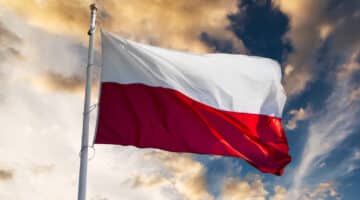
KNF Regulatory Entity
[top_three_brokers] In Poland, the Polish Financial Supervision Authority is in charge of the supervision of…
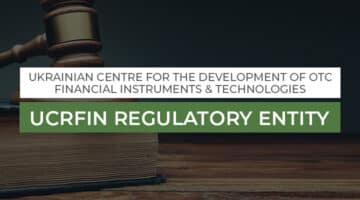
UCRFIN Regulatory Entity
[top_three_brokers] UCRFIN Regulatory Entity (Ukrainian centre for the development of OTC financial instruments and technologies)…

CBR Regulatory Entity
[top_three_brokers] The Central Bank of Russia is the country's institution responsible for developing the state's…

FMA New Zealand Regulatory Entity
[top_three_brokers] FMA is the abbreviation of Financial Market Authority. The Financial Markets Authority is playing…

FC Regulatory Entity
[top_three_brokers] FC stands for Financial Commission, which is an independent international body for brokers and…
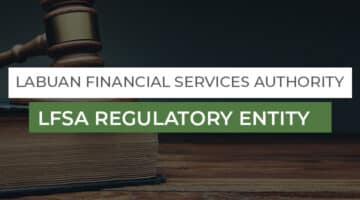
LFSA Regulatory Entity
[top_three_brokers] Labuan Financial Services Authority (Labuan FSA) is responsible for providing financial services in Labuan…
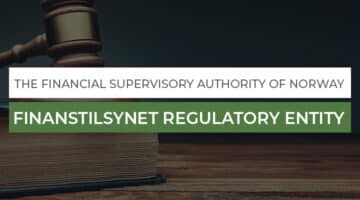
FINANSTILSYNET Regulatory Entity
[top_three_brokers] FINANSTILSYNET (The Financial Supervisory Authority of Norway) Regulatory Entity is an independent government agency…

AFD Regulatory Entity
[top_three_brokers] AFD is termed as Association of Forex dealers which is a self-regulatory organization (SRO)…

GFSC Regulatory Entity
[top_three_brokers] Guernsey Financial Services Commission is charged with maintaining financial industry standards in the Bailiwick…
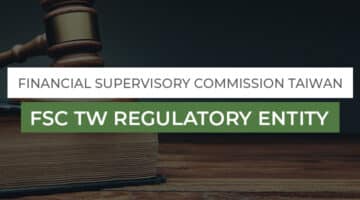
FSC Taiwan Regulatory Entity
[top_three_brokers] The Financial Supervisory Commission, FSC, is an independent authority body in Taiwan. Taiwan's financial…


